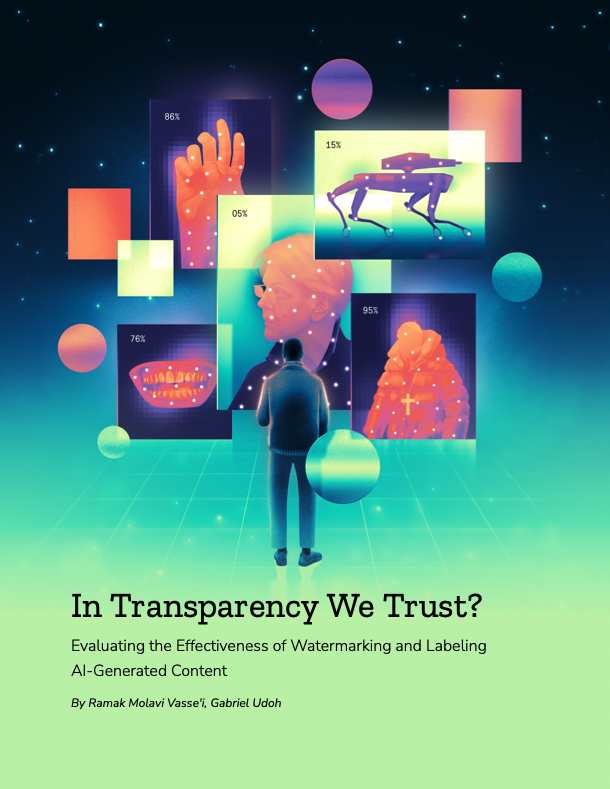Can “better businesses” learn from the Kate Middleton photo scandal?
21/3/2024
We’re sure you’ve heard the news. Kate Middleton’s edited Mother’s Day photo poured fuel on the already smouldering rumours about the Princess of Wales’ recent unspecified health issues, igniting even wilder conspiracy theories. Major photo agencies issued a kill notice on the photo and Kate released an apology statement that raised more questions than answers.
Like many amateur photographers, I do occasionally experiment with editing. I wanted to express my apologies for any confusion the family photograph we shared yesterday caused. I hope everyone celebrating had a very happy Mother’s Day. C
— The Prince and Princess of Wales (@KensingtonRoyal) March 11, 2024
We aren’t about to join the TikTok sleuthers in unpicking the now infamous photo. But the way this saga has unfolded got us thinking about public mistrust towards public figures, institutions and corporations – a sentiment that’s on the rise during these times of AI-generated content, fake news and greenwashing.
What lessons in trust and transparency can socially responsible businesses take from the scandal – both the way it was handled by the Royal Family and the public reaction? That’s what we’re here to investigate.
What the Kate Middleton photo story tells us about public mistrust
Followers of royal shenanigans have been desperate to know “the truth” about Kate Middleton’s extended hospital stay, which there have been minimal details about. Many found it hard to accept that she’d undergone surgery and was taking time to recover, but doing well. There had to be more to it.
This leap to suspicion is a product of the algorithm-driven media landscape of today, which encourages the spread of unchecked disinformation and conspiracy chasing. Headlines and especially social media content filled with emotion and clickbait gain more traction than those presenting reliable, but usually more mundane, facts. It’s how the “body double” conspiracy theory about Kate racked up more than 12 million views on X and 11 million on TikTok in less than 24 hours.

Then there’s the rise in AI, which has planted seeds of scepticism among society towards online content. We’re increasingly questioning the authenticity of what we see online. In fairness, there is a need for greater media literacy and caution in this respect, as the fake AI-generated photos of Trump with black voters proved.
But we’re heading for more extreme levels of suspicion. “Experts have reasoned that technology might become so good at conjuring synthetic media that it becomes difficult for anyone to believe anything they didn’t witness themselves,” writes Charlie Warzel in The Atlantic. This distrusting mentality is going to be strongest among Gen Z and the generations to come, who will have grown up surrounded by filtered and altered realities online.
What does this mean for businesses trying to do better?
All this might sound a touch dystopian. But actually, those of us committed to running responsible brands and sharing our ESG journey might be best placed to navigate this environment, if we’re brave and bold on transparency and accountability.
While the photo fiasco highlights how unclear, fuzzy details and exaggerated PR are being met with ever-increasing scepticism, people are receptive to honesty and openness. Because it’s not only out-there conspiracy theorists who want “the truth”. Just look at how the public is becoming more savvy on greenwashing and the new EU regulations clamping down on misleading claims: calls for greater transparency are coming from all corners.
Your communication needs to build trust and credibility. And that doesn’t come from being perfect, but being transparent. After all, sustainability isn’t a destination but a journey. Let’s be upfront about the choices we’re making along the way and not retreat into “greenhushing”.
Ways businesses can inspire more trust
Partner with experts for credibility
Of course, everyone – royals included – should get to enjoy their hobbies and test out new skills on the job. But perhaps in a moment that was meant to inspire trust with her audience and essentially build brand reputation, Kate could have teamed up with a professional photographer on this one.
Tortoise’s Head of Photography breaks down the photo edits in this Instagram Reel and confirms it’s an amateur attempt to “clean up” the image. Without the original image or an explanation of the edits, this doesn’t necessarily help Kate’s credibility. In different circumstances though, bringing in an expert opinion like this could have boosted validity.
Likewise for businesses, partnering with expert organisations or consultants reassures clients of your credibility. As you build partnerships, be sure to shout about them. Brand protection experts Corsearch’s ESG landing page is packed with references to partner organisations, along with explanations about how they work together to keep their impact on track. Seeing that gives you instant faith in their CSR actions.
Get verified through trusted sources
Since Kate’s apology didn’t specify what changes have been made or why, it’s up to the public to trust her word. But words alone leave room for doubt. It’s like promising your products are sustainable without being able to verify what’s happening at each stage of your supply chain. That doesn’t fill your audience with confidence. In fact, it screams greenwash.
This is where verification through frameworks like B Corp and Good Market (one of our partners we work with to verify all brands on Social Supermarket) can help you. Getting certified through recognised bodies lets your customers know you’ve met the standards required to join the club.
Industry specific accreditation might be even more powerful for connecting with your target audience. For instance, law firm Burges Salmon’s inclusion in the The Legal 500 Green Guide shows they’re leading the way on ESG and green change. It’s recognition that makes them a go-to for clients in these spaces.
Share receipts
Kate might have chosen to keep the details of her edits under wraps, but businesses need to bring their behind-the-scenes work out into the public. It’s good practice – and increasingly common – to release data, plans and reports to show progress on ESG goals. Think yearly impact reports or gender pay gap data. It’s an area where we help clients, providing personalised impact measurement data on their purchases.
It’s also a way to make yourself accountable. For instance, companies like Identity Holdings Ltd and Foodbuy publish carbon reduction plans online. Putting these out in the public signals they’re open to questions about how they’re measuring up.
Another important point is making clear where generative AI tools play a part in your work. Failing to do so erodes trust. But showing clients how they enhance your creativity, improve processes and finesse your services can make it something exciting and innovative. Agency group WPP pulls this off with a brilliant showreel of their AI-led projects.
A prime example on the flipside of this attitude is major fashion brands failing to step up and disclose meaningful information for last year’s Fashion Transparency Index. Just two out of 250 scored above 80% on the index. It’s clearly a case of hiding information for fear of being called out. Meanwhile, a willingness to share the “in-progress” parts of your business shows real commitment to growth and change.
Be direct and create a culture of openness
It’s been pointed out that Kate’s apology “marks a break in royal tradition to ‘never complain and never explain’, a phrase…represent[ing] the family’s stoic approach to controversies.” That’s true yet neither the photo nor apology answered the questions people were actually asking: why was she in hospital? Why were these particular edits made to the photo?
While there’s no question the Princess of Wales has a right to personal privacy, it’s a different ballgame for businesses. You can’t avoid tough questions and uncomfortable conversations – your audience won’t appreciate having concerns ignored. Instead, embed openness and transparency into your culture and values.
We recently had a slip-up which gave us a chance to walk the walk on this. We got the International Women’s Day theme wrong, following the lead of a convincing unofficial website rather than the UN’s theme. Instead of removing or amending our blog post and other marketing material without comment, we owned our mistake. The blog post is still live with an editor’s note, explaining what went wrong and what we learnt.
The more you can be open to feedback from your community, the better. Taking their ideas on board will help them feel more invested in and loyal to your organisation. It’s an approach we’ve seen B Lab take as they evolve their standards, inviting those in the movement to guide the future principles.
Get behind the Better Business Act
A final way to instil trust in your ESG efforts: support the movement to put “Better Business” practice into law. It’s the change the UK public want to see, with 77% saying they’d like businesses to be legally responsible for their impact. Join the coalition and prove you’re with them on that.
Which actions to inspire trust will you be taking? Move the conversation on in your office by forwarding this blog post to your teammates or share your thoughts with us on LinkedIn.



